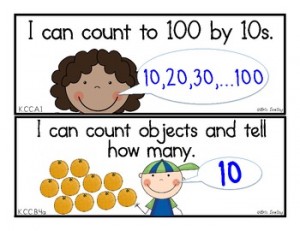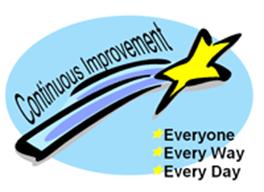Coming up at Arno…
November 2 Parent Meeting Yesh 4:00
November 3 No School- PD Day at Bennie 8:00-3:00
November 4 Steve out a.m.
November 5 Walkup observation 9:00
Curriculum Council 4:00
PTA 6:30
November 6 Steve @Riley
IEP Sutton 1:30
Happy Halloween everyone, what a fun day!
Fun Run Update
The PTA will announce this Monday morning on announcements the results for the Fun Run. Monetarily, the fun run took in about $9000, this is exact amount of their budget so there may need to be some additional fundraising throughout the year- but nothing big (skating parties, etc). The winners of all the prizes will be announced over the announcements and we will call the students to come down for a certificate. Ashley’s class won the pizza party, the limo/lunch with me will take place on November 12th 11:30-1:00, and we have 2 tied for Principal for a Day, which will happen on November 19 and 20. Notes will go home with any pertinent info. The announcement is below:
I Can…
If you are looking for some specific wording for making “I Can” statements to post your objectives, try these two links for pre-made statements. They are modeled from the common core for math and reading. Remember, one of the important pieces of your lesson is that the students know what it is they are learning.
http://www.nassauboces.org/Page/1940 Reading I Can
Arno Happenings… From roller coasters to perfect pumpkins
Picture Retakes
Get that smile rolling again as picture retakes are scheduled for Nov. 12. Students will be called down when its time.
School Improvement Meeting
Thank you to everyone who attended our SIP meeting this past week and to Sarah, our MC. It was a smooth meeting and I was happy to see a good amount of staff there. We have moved the meetings to 3:45, hopefully that may meet your needs for an earlier finish time.
You should have received a copy of the ppt that was presented from Sarah. It mainly contained updates from the Title 1 Director’s Institute conference that I attended with Barb and Cathy. I will be putting copies of the items we covered that included PLCs, MTSS, Higher order questioning, and Mindset. Believe me when I say that I know everyone is very busy with our daily classroom duties, but if you are able to just read one article per week and send me any questions- it is worth your professional time to take a look.
I have ordered a questioning flip book from Modern Teacher, which takes you from recall all the to self-actualization. When it comes in, I will call a short voluntary meeting for distribution.
Chrome Carts
It was announced yesterday at our SIP meeting by Guy Desjardins that the district has purchased 2 chrome carts for each elementary (700 total). While I don’t have a timeline, this will come in to play to help us out with testing for sure, and then a year round benefit for classroom use. As it looks the most practical right now, I will be asking for the PTA for a chrome cart/some tablets combo (which we will chip on) as well. I am hoping to get at least 1 per grade level at this point. Stay tuned for more info
3rd Grade Retention Bill
If you have been following the reading proficiency Bill that is winding through the legislature, then this is just an update. If you are unfamiliar with this Bill, please read the article for the latest on the state’s attempt to keep districts accountable for those who cannot read on level by the end of 3rd grade. This will have a huge impact on how we do things such as our service model for struggling kids. We don’t know what the final language will look like, but it looks to probably go through in some form.
The Michigan House today approved a controversial bill that would require students to repeat the third-grade if they’re not proficient readers.
The bill passed on a vote of 57-48, after impassioned pleas from lawmakers on both sides. It now goes to the Senate for consideration.
The bill was one of two big education-related bills the House took action on today. In the other, the House approved — by a vote of 97 to 8 — a bill updating the state’s rules on evaluations for teachers and administrators. That bill goes back to the Senate for concurrence.
But it was the third-grade reading bill that sparked the big debate.
“It’s not acceptable to allow our kids to not be able to read and yet send them along their way,” said Rep. Lisa Lyons, R-Alto.
Perhaps the most surprising “no” vote came from Rep. Adam Zemke, D-Ann Arbor, who co-sponsored the bill and has been a proponent of it. But the House rejected an amendment he proposed that would have allowed a third-grader to move on to the fourth grade if that child had worked hard to improve.
“I am not going to remove the hope of a 9-year-old. Period,” Zemke said.
After the vote, Zemke and House Minority Leader Tim Greimel asked that their names be removed as co-sponsors of the bill.
While much of the focus was on the retention mandate, the bill also requires school districts to intervene early with struggling readers and employ early literacy coaches who would assist students and teachers.
“Thirty percent of Michigan third-graders have not been afforded the gift of literacy,” said Rep. Amanda Price, R-Park Township, the bill’s chief sponsor. “This number is unacceptable and to me heartbreaking.”
But Democrats, while saying they supported the bill’s primary focus on intervention and help for struggling readers, raised concerns about a number of issues. They cited research that says children retained are more likely to drop out.
Rep. Sam Singh, D-East Lansing, was particularly concerned that negotiations all day Wednesday didn’t produce language that would give parents a say in what happens to their children.
“What you’ve done is taken the families and the parents out of this equation,” Singh said.
Rep. Harvey Santana, D-Detroit, railed against social promotion, though, saying that passing kids along when they can’t read sends the message that failure is OK.
“I refuse to be part of the conspiracy to emasculate our urban children,” Santana said. “A social promotion does nothing to help a child. It does everything to destroy them.”
Many education groups were opposed to the bill. Members of the State Board of Education, in a statement unanimously adopted Tuesday, said they opposed the bill’s mandate on retaining students.
“While there are situations where retaining students in their current grade is warranted, that decision needs to be decided on case-by-case basis, between educators and parents,” the board said. “It should not be automatic”
Some students would be exempt from the retention mandate. They include special education students who aren’t able to take the state exam, a special education student who has already received intensive intervention in reading but is still struggling, and a student who has had less than three years of instruction in a program for students who have limited English speaking skills.
Meanwhile, the educator evaluation bill passed with no debate. The bill limits the number of consecutive years a student is assigned to an ineffective teacher, requires that 40% of a teacher’s evaluation be based on student test score data and gives schools the ability to choose how they’re going to evaluate staff.
Its passage comes two days after the Michigan Department of Education laid out its own plans for providing support to school districts trying to implement laws requiring a stronger evaluation system — including directing $12 million in state funding to intermediate school districts for training.
The issue of educator evaluations has been a hot, contentious one in Lansing since Michigan lawmakers approved legislation in 2009 requiring annual evaluations for teachers, along with the use of student test scores to determine how teachers are rated. There have been updates to the law since then, and recommendations for a statewide evaluation system were made in 2013 by the Michigan Council on Educator Effectiveness, which was created by the Legislature.
The bill approved today incorporates some of the recommendations from that council.
While most districts had moved ahead to develop evaluation systems that would provide information to help teachers improve, some were waiting for the Legislature to provide more clarity on the law, Venessa Keesler, deputy superintendent for the Michigan Department of Education, said during a meeting Tuesday.
The current law says 50% of a teacher’s evaluation must be based on student growth data — data showing how much improvement a student made while with the teacher. State test scores are a key part of that data.
But that changes under the bill approved today. Beginning this school year, 25% of the evaluation must be based on test data. That rises to 40% beginning with the 2018-19 school year.
Free Press staff writer Kathleen Gray contributed to this report. Contact Lori Higgins: 313-222-6651 or lhiggins@freepress.com. Follow her on Twitter @LoriAHiggins.

















